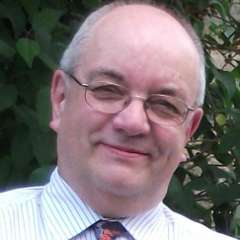Bruges, jewel of Belgium, is a beautiful city but it gets a rough ride in popular culture. As Colin Farrell’s character declared in Martin McDonagh’s 2010 film In Bruges: “maybe that’s what Hell is: the entire rest of eternity spent in f***ing Bruges”. In 1892 (a more decorous era, perhaps) the novelist Georges Rodenbach said much the same thing in Bruges-la-morte, a gloom-fest tale of bereavement, grief and the poisonous impact of lost love on an obsessive mind. The titular city was its own pathetic fallacy: a personification of death embedded within avenues of brick-gothic façades. One for the tourists, then.
It certainly enticed the 23-year-old Erich Korngold, a precocious young Austrian who, at a susceptible age for such torrid angst, chose to adapt Bruges-la-morte as Die tote Stadt (The Dead City). The libretto was his own, written in collaboration with his father and credited to the pseudonymous Paul Schott. Both scenario and score are heady, overheated and extreme, the work of a composer whose technical accomplishment was exceptional and untainted by self-doubt.
Orchestrations borrow cheekily from Richard Strauss with flavours of Mahler and Wagner thrown in. Yet for all its expressionistic fervour, the main voice we hear is that of a man who would go on to become the darling of Hollywood. For English National Opera’s new staging, Kirill Karabits and the ENO Orchestra savoured every minute of Korngold’s lush, ultra-romantic style.
As Paul, the widower who fancies he’s seen his late wife Marie reincarnated in another woman, Rolf Romei returns to a role he has sung in several previous productions around Europe, only this time he switches languages to sing Kelley Rourke’s idiomatic translation in impeccable English. Even under vocal strain (a pre-show announcement warned us he was ailing) the Swiss tenor characterised a man on the edge of insanity with musical and dramatic dexterity. Rarely if ever offstage, and navigating an illusory world of fantasy for much of the three-hour running time, his star turn is a remarkable achievement.
Joining him in the real world (although they do tend to seep through the mental splinters of his nightmare) are Sarah Connolly as Brigitta, the housekeeper, and Audun Iverson as Frank, Paul’s friend and confidant. The gravitas of these distinguished artists enhances the grounded reality of Paul’s dreary home, designed by Miriam Buether as a 1950s living room complete with radiogram and tawdry, oversized lampshades.
To sing Marietta, the woman whom Paul sees as a reborn Marie, ENO has given soprano Allison Oakes her house debut in a role she has already sung in Hamburg. Oakes is one of a legion of British singers to be better-celebrated in European cities than in her own country (another, Catherine Foster, is about to make her Royal Opera debut as Turandot) and she impressed with the power and sheen of her delivery. When her voice came under pressure she had me reaching for the surtitles, but otherwise her performance was compelling.
Director Annilese Miskimmon breaks through the claustrophobia of the antihero’s morbid existence by leading the audience through walls and ceilings into a psychotic landscape of Paul’s imagining as he pursues his vision of the dead Marie. The director lets us see a physical manifestation of the latter in spectral form and, as played by Lauren Bridle, she is a wraith-like creature, not of the living but not a dead ringer for Marietta either. It’s a puzzling staging decision that’s slightly, albeit not calamitously, distracting.
What a stirring score it is, and how magnificently it’s rendered by ENO's forces in the company’s strongest season in years, artistically speaking. The core of energy at the heart of The Dead City explodes via an ensemble of regular company talent who inhabit the surreal logic of dreams. Rhian Lois, Clare Presland, Innocent Masuku and William Morgan are joined by the Finchley Children’s Music Group – flown in from Narnia to materialise through Paul’s fireplace – and by the splendid ENO Chorus who nail their brief to conjure up a remembrance of things past.




